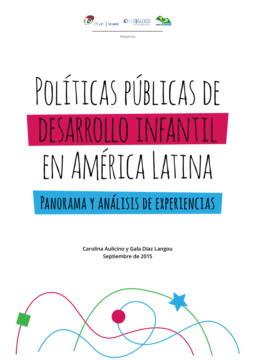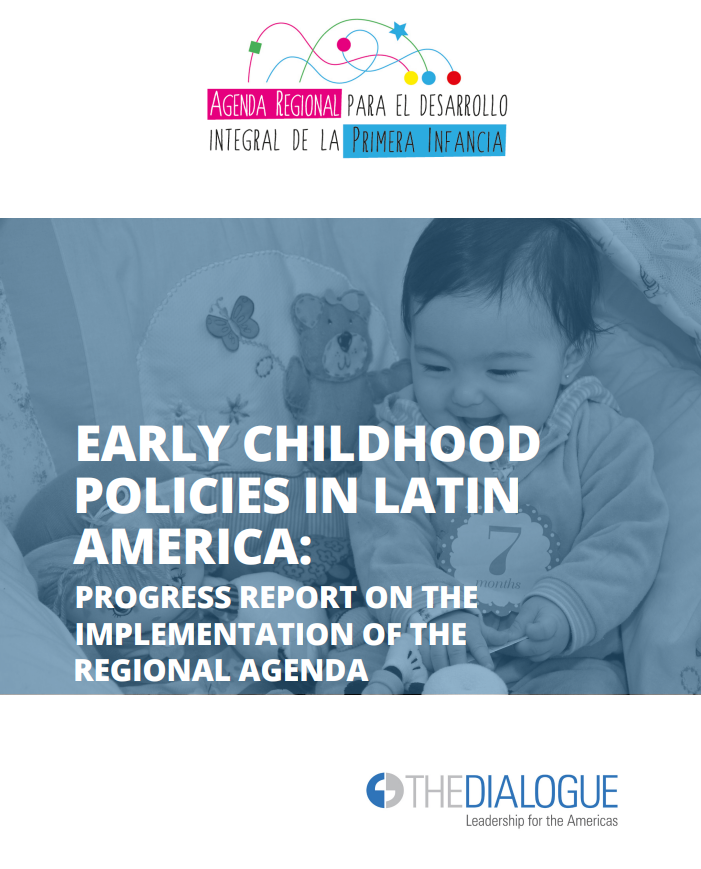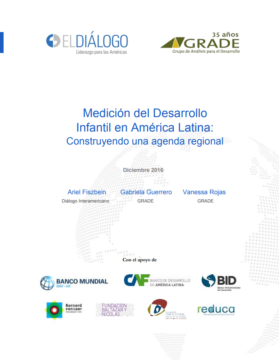
An Agenda for Early Childhood Development
Early childhood development is one of the investments with the highest returns and allows us to achieve, simultaneously, equity and efficiency objectives.
This post is also available in: Español
In order to promote the adoption of better policies that promote the development of young children, the Regional Agenda for Early Childhood Development was signed in Bogota on November 2017. The Agenda, which was endorsed by 22 representatives from different sectors across 11 countries, defines four areas in which participants agree to prioritize their efforts: (1) Multi-sector planning and financing, (2) Improving the quality of early childhood development services, (3) Measuring early childhood development, and (4) Collaboration and alliance building.
In accordance with this agreement, and in order to measure the progress made in alignment with the Agenda, an instrument for assessing the state of early childhood policies was collaboratively developed using the Bogota Declaration agreements as a reference. Between 2018 and 2020, research centers in ten countries, together with the Inter-American Dialogue’s Education Program, developed national reports to monitor the progress of compliance with the agreements on the agenda of each country over time.
This document summarizes the main findings of these ten reports in terms of the four agreements, recognizing opportunities for improvement and above all highlighting the strengths of different countries in each of the areas. This report aims to inform the governments and citizens of the region about the state of early childhood policies and their compliance with each agreement of the Bogota Declaration, as well as to highlight good initiatives that could serve as an example for other countries.
Multi-sector planning and financing: Over the last 15 years, almost all countries have developed a comprehensive early childhood policy, strategies, or a national early childhood plan. This denotes the recognition of this age group and its relevance to human development by the governments of the region. We view the need for more and better cross-sectoral communication that can deliver an integrated supply of benefits as one of the main outstanding challenges. Additionally, the institutionalization of these plans, strategies, or policies with clear leadership and political will is still pending in many countries. Finally, there is a need for greater clarity in investment in this age group.
Improving the quality of early childhood development services: While no country included in this report has a quality assurance system that ensures the quality of early childhood services, many of them are moving in that direction. It also shows the need for all actors to ensure, at the structural level, a minimum quality of educational services as well as to ensure the quality of processes.
Measuring early childhood development: It is important to note that most countries have made efforts at one point or another to understand the level of development of young children. Also, some have included assessments in health or education systems. But most of the countries studied do not have clear early childhood development goals for their population or a regular evaluation plan to monitor public policies.
Collaboration and alliance building: In terms of collaboration and alliance building, different levels of civil society participation in early childhood issues are observed across the region. However, none of the early childhood policies include a requirement of binding collaboration or mechanisms for permanent participation. Some instances of collaboration do exist but vary in degree of formality on the part of the state.
Early childhood development is one of the investments with the highest returns and allows us to achieve, simultaneously, equity and efficiency objectives.
Measuring early childhood development (ECD) at the national level is crucial for informing policy-making and for evaluating ECD programs in Latin America.
La importancia de los primeros años de vida sobre la formación del capital humano es ampliamente reconocida. ¿Cómo podemos asegurar una oferta de servicios de calidad?


